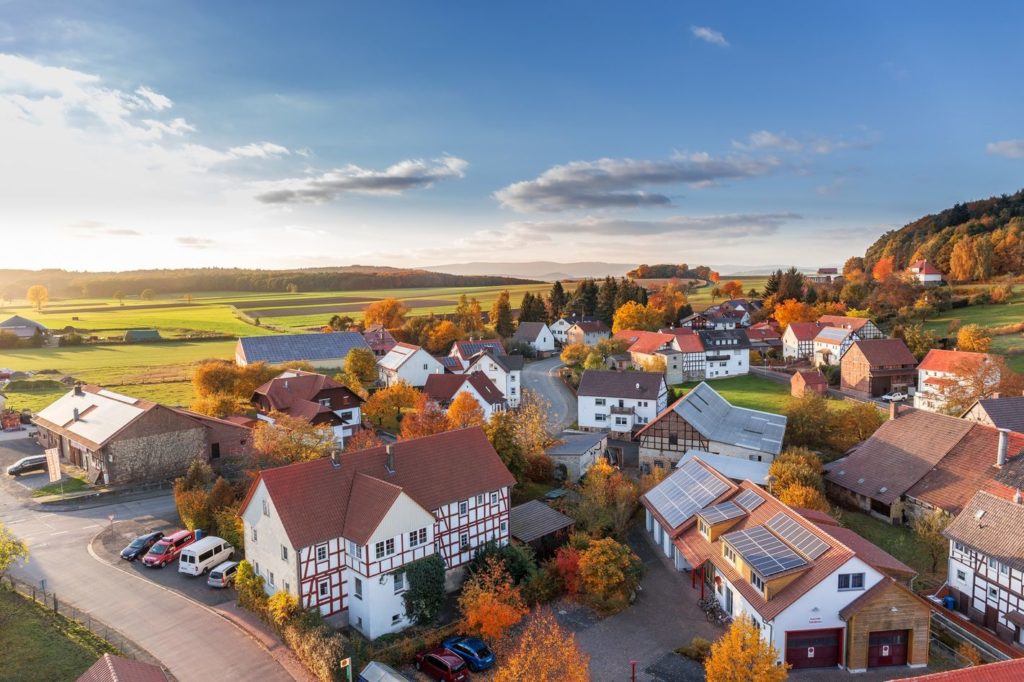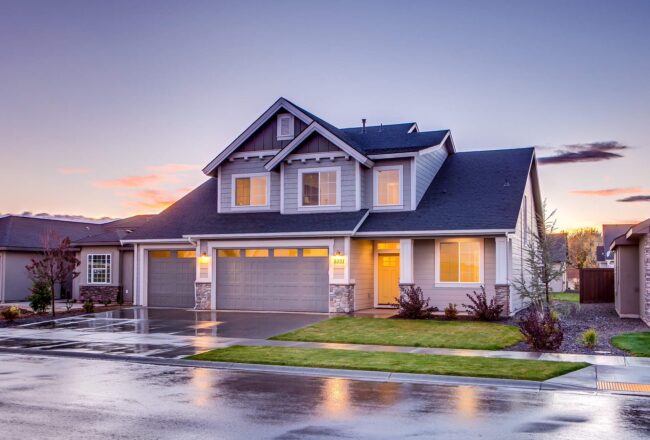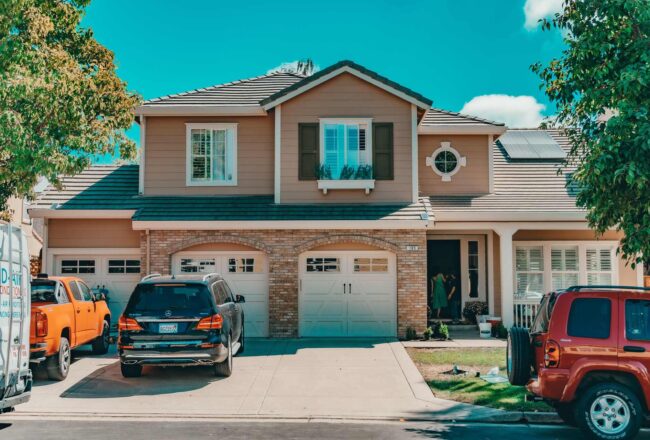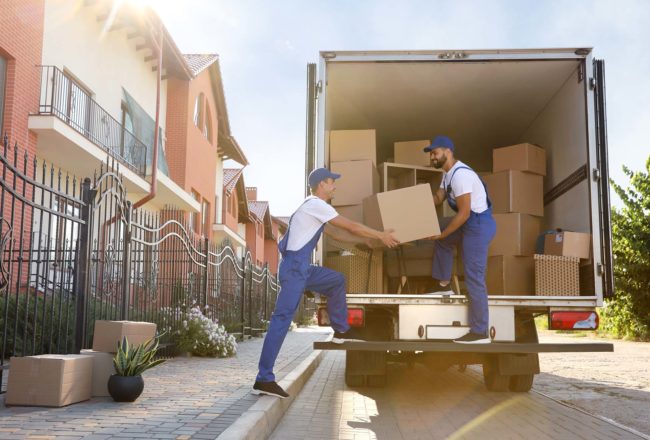If you often wake up in the middle of the night because of heavy traffic or find yourself feeling lonely in huge crowds, moving to a small town and changing your current lifestyle could bring you a little joy. However, before you make your final decision, get familiar with all the benefits and disadvantages of living in less populated areas. Follow our simple guide, and you’ll learn everything you need to know in no time.
1. Why Should I Move to a Small Town – Lower Cost of Living as a Big Benefit for Many People
Does it cost less to live in a small town? No matter which amenities there are or how many new events wait for you just outside of your home, the ultimate truth is that a big city has higher living costs than more rural areas. And on top of that, while in cities, you are practically forced to choose to rent an apartment as your housing option, smaller towns offer you an affordable possibility of owning a home, besides cheaper utility bills, groceries, and transportation.
Keep in mind that house prices in less populated towns could sometimes drop as low as half of the price you would need to pay for a home in highly populated cities, even if they are both parts of the same state. And as a cherry on top, rural regions tend to have cheaper property taxes. Want to save money? Moving state-to-state to a rural region could be your solution.
Is It Smart to Move to a Small Town During the Coronavirus Pandemic?
COVID-19 has had a severely negative impact on all areas of life in the US, including the economy, which resulted in many people losing their jobs or having a significantly lower monthly income. That unfortunate situation has made them think about relocation during the coronavirus crisis and look left and right to find a place that could be more financially manageable in the newly formed circumstances.
Naturally, they often find it in less populated areas rather than in metropolises. The best part is that you won’t even have to downsize for your new home and get rid of your things – ensure to hire packing services to help you with all the belongings. So if financial security is your primary concern, start learning how to move to a small town and employ state-to-state movers that will provide you with a stress-free relocation.
2. You Will Need to Prepare for a Completely Different Lifestyle
If you lived in a city your whole life or if a relocation from a smaller town to a big city was a part of your early experiences in life, prepare to find a smaller town’s lifestyle a little bit odd. Your experience will be somewhat similar to relocation to the suburbs, with a highly developed sense of togetherness between people and the fact that everyone knows everything about everybody (or so they think).
A Less Populated City Is the Best Destination for Those Seeking Space, Peace, and Quiet
If you prefer spaciousness and peacefulness, you may want to run from all the noise linked to cities – imagine waking up in the morning without the sound of car horns and yelling and enjoying the quiet while sipping your morning coffee. And it’s not only you who will love living there – if you are relocating with pets, your furry friend will also have a lot more places to run and play. It’s certainly something to look forward to.
You’ll Flourish in a Tight Community After Moving (If That’s Your Thing)
It is not a secret that existence is simpler in regions away from urban centers. Most people you’ll meet will be family-oriented folk who find value in closeness and friendship rather than a career. That is one of the reasons you are bound to feel community support rather than individual rivalry – everyone will be prepared to come to your aid if needed.
In contrast to the common cold and distant vibe that people from metropolises give, in most of the less populated areas, you’ll see friendly and warm faces that will welcome you with open hands. It will make meeting neighbors as well as making friends in a new city a lot easier, and saying goodbye to old friends more bearable.
Do your best to become a part of the community, especially if you are moving interstate alone – just get involved in local events and be open-minded. It could be of great help, especially if you are dealing with depression after relocation.
One of the downsides, however, might be a lack of ethnic and cultural diversity, which can be challenging for someone belonging to any minority group. However, note that many smaller towns recognize this issue and want to do their best so you and your family won’t feel excluded in any way. The second downside, however, has to do with the notorious lack of privacy – sometimes, it’s hard to be yourself if you know that everything you do will probably be discussed later on at the next street corner.

3. There Will Be Difficulties Concerning a Tiny Town’s Job Market
Many of your concerns may be revolving around the question of how do you survive living in a small town with such limited job opportunities and lower monthly income. First of all, let us remind you that the difference between housing costs in less populated areas and cities is bigger than the difference in salaries – housing costs are much lower, while the difference in earnings is not that significant.
If you want to find a job after college or are searching for different options when relocating without a job, you might get a slight case of anxiety about relocation. Luckily, we have a few tips and tricks that will make the work situation in less populated towns more hopeful. You could:
- Explore jobs you could do remotely,
- Think outside of the box and get a job not directly connected to your college degree,
- Seek work in nearby towns and cities, if that is manageable,
- Start your own business.
The job demand in more rural areas could also be a little more specific, so watch the video below and do your research on the most profitable business ideas in less populated regions.
4. Driving and Commuting Will Feel Like a Breeze After Experiencing Big City Traffic
When relocating to a more rural area, you don’t have to ask yourself where to keep or sell your vehicle – prepare your car for shipping after you hire auto transport services, and we assure you that you’ll experience a newfound joy of driving without stress. Generally cheaper car insurance as a result of lower rates of thefts and accidents is an added benefit. On top of that, keep in mind that public transportation is not something you want to depend on – in some tiny towns, it’s practically non-existent.
All the Ways That Living in a Smaller Community Can Save You Time
When thinking of all the ways that interstate moving to a smaller area can positively impact your health, remember all the stress you go through when trying to find a parking spot. Tiny towns usually don’t have parking problems, but even more than that, keep in mind that many stores will be within walking distance. More walking also means a healthier lifestyle and less money spent on gas. And without unexpected construction zones and traffic jams on your commute, be prepared to spend a lot less time commuting on a daily basis.

5. Smaller Places Usually Lack in the Food and Events Department
Thinking of how to live in a small town without the diversity you are used to will probably lead you to think about the not-so-good side of smaller communities. It’s true – there are fewer choices by far when it comes to different ethnic food, coffee shops, shopping centers, restaurants, or events. Sometimes it will be a bummer, like when you think you’re dying for some Thai food only to realize that the closest Thai restaurant is three towns away.
However, try to maintain a positive spirit – with fewer possibilities, just maybe, you’ll learn to cook all your favorite meals. Of course, there won’t be any fancy restaurants that have mile-long waiting lists, so when you feel like “going out”, you are bound to spend less money, time, and nerves. In the end, it’s not true that less-populated communities don’t have events – they are just different from what you are probably used to. Don’t know what we are talking about? Watch a few episodes of Gilmore Girls – you’ll soon learn the ropes.
Different Things Will Fill Your Everyday Life
As you can imagine from everything previously said, less populated areas live at a much slower pace, and it shows in every aspect. For example, you can rarely find a store that is open 24/7, and you should be prepared that some of them won’t even work on the weekends.
You’ll soon realize that people are not in a hurry at all, like in cities, and will often drop what they’re doing just to chit-chat a little. Spending free time with family and friends and nurturing relationships holds a lot of value to these residents.

6. You’ll Enjoy Much Nicer Scenery Than a Concrete Jungle Can Provide
More rural regions have much more possibilities for daily outdoor activities. That can be extremely helpful if you are relocating with kids – they won’t be locked up in the apartment and will be more physically active outside than the city would ever allow them. They will be free to roam and play each day – explore which areas are considered the best cities to raise a family.
To add to that, the beautiful nature smaller communities are usually located in and less air pollution that will give you the possibility to see countless stars each night from your (usually big) backyard. You can probably feel yourself getting more relaxed by the minute.

A Few More Things You Should Know About Moving to a Small Town
Now that we finished with some major metropolises vs. tiny places differences, it would be good to focus your attention on a few more important characteristics of less populated areas:
- You might have a problem with medical services – medical facilities are often farther away than you would hope for, and it takes more time for everything, especially if you intend to schedule an appointment with a specialist from a particular medical field.
- Utilities might function a little worse than what you are used to – you may experience power outages, and you might find the town’s (only) internet provider lacking.
- In principle, less-populated areas are safer places to live in – however, that doesn’t mean that you don’t need to take safety precautions after you relocate to a new state.

Is It Better to Live in a Small Town?
There is no easy answer to this question – it will always depend on your lifestyle preferences as well as your reasons to move. If you seek frequent human interaction, a tight community, and enjoy when everything slows down, there is no reason not to start organizing a relocation to your new home right away – start with booking long-distance moving services.
The dilemma, however, can be solved only on an individual basis and only by asking yourself what you want from your future. So close your eyes and try to think of a place that will make you happy. These questions will be answered only by the things you see.












